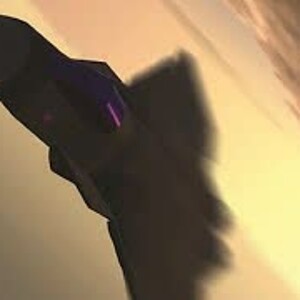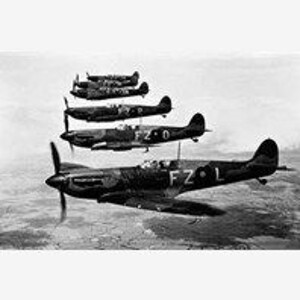Royal Aeronautical Society Podcast
The Royal Aeronautical Society is the world’s only professional body dedicated to the entire aerospace community. Established in 1866 to further the art, science and engineering of aeronautics, the Society has been at the forefront of developments in aerospace ever since.
Episodes

Tuesday Aug 04, 2020
Tuesday Aug 04, 2020
This webinar will be delivered by Dr Michael John Pryce MRAeS, Senior Air Systems Analyst of Future Projects Research. Mike will explore the challenges in meeting the future needs for combat aircraft across the globe.
He will also look at enduring issues that challenge the development and support of future combat aircraft, and how to overcome them within resource constraints and political limitations.
Three main areas will be explored:
- Design for Combat Air
- A Low Cost Industry
- Combat Air Transformation
These build on work done as an advisor during the development of the UK Combat Air Strategy. The webinar will take into account recent developments in the United States, Europe and East Asia, where public debates are rapidly evolving, and explore their implications for the UK.

Tuesday Aug 04, 2020
Tuesday Aug 04, 2020
Britain has always been at the forefront of aeronautical research and development. When it was really needed, the country’s industry, research establishments and individuals stepped up to the mark – that was the summer of 1940.
Today, we call the period between 10 July and 31 October of that year the Battle of Britain. This is the 80th year when RAF Fighter Command’s aircrew were the first line of defence – the tip of a long spear which included essential workers, civilians and those in uniform; trades as diverse as GPO linesmen and bakers.
Paul Beaver will examine the secret work which enabled the Royal Air Force to stay on top of the Battle as it engaged and then bettered the world’s most successful air fighting force – the Luftwaffe. The key technologies and concepts included high octane fuel, changes to carburation of the Merlin engine, civilian repair units, radar (then called RDF), integrated command & control systems. The talk is illustrated with PowerPoint slides.

Tuesday Aug 04, 2020
Tuesday Aug 04, 2020
Great technical strides in Artificial intelligence (AI) over the last ten years have seen machines rival or exceed human capabilities in multiple fields, including transport, life sciences, entertainment, retail and finance. AI, and particularly machine learning, has the potential to disrupt industries and change society by automating automation itself and doing so at an increasing rate. Yet, current AI also has fundamental technical shortcomings, such as a lack of transparency, a vulnerability to bias and brittleness of operation.
Together, these factors raise new social, commercial, legal and ethical challenges. Around the world, private companies, governments and inter-governmental bodies are debating how to ensure responsible use of AI through codes of ethics, regulation and legal reform.
The use of AI technology in commercial aviation has brought some significant changes in the ways aircraft are operated and maintained. From the engines in the aircraft, ground based AI is used to analyse engine data transmitted whilst the aircraft is in flight – from thousands of engines simultaneously – to monitor their health and enable maintenance teams to predict when the engines will arrive in overhaul shops and plan inventory and workscopes accordingly, thereby providing massive benefits to the turn-around times and hence the availability of Airlines’ assets. The world’s leading airlines and travel companies are now using AI tools and technologies to deliver a more personalized travel experience to their customers. From building AI-powered airport kiosks to more efficient airline operations and security checking, AI will play an even more critical role in the aviation industry.
In 2020, the EASA released a roadmap where it considers that “AI will not only affect the products and services provided by the industry; it will also trigger the rise of new business models.” AI is highlighted as a priority by the New Experience in Travel and Technology (NEXTT) initiative launched by The International Air Transport Association (IATA) and Airports Council International (ACI) in October 2017 aiming to optimise the use of emerging technologies in the face of growing passenger numbers, specifically in relation to its ability to improve real-time decision-making and, therefore, efficiency.
This webinar will look at the fundamental legal and ethical issues raised by AI and its impact on the aviation industry.

Thursday Jul 30, 2020
Thursday Jul 30, 2020
Classic Lecture – Integration : man & machine by Andrew Warner FRAeS by AeroSociety Podcast

Monday Jul 13, 2020
Monday Jul 13, 2020
Planned to succeed the Harrier even before the Harrier, flew, the P.1154 was the joint winner of a NATO competition to produce an advanced S/VTOL aircraft. Michael Pryce tells a fascinating but familiar story of how organisational, financial, technical, and political problems collided leading to Denis Healy cancelling the project in 1965. Pryce then examines the project’s legacy, both technically and as a lesson in advanced project planning.
The lecture is followed by a wide-ranging question and answer session which compares the P.1154 story to many of the issues facing the industry today.
Dr Michael Pryce addressed a meeting organised by the Royal Aeronautical Society’s Historical Group on 12 April 2012. The lecture was introduced by Peter Elliott and the podcast was edited by Mike Stanberry FRAeS.

Monday Jul 06, 2020
Monday Jul 06, 2020
In this fascinating insight into the early flight testing of Lockheed Martin's Lightning F-35B, BAE Systems test pilot Graham Tomlinson takes us through the programme to develop the stealthy, multi-role attack aircraft and explains many of the challenges that faced the test phase of the project. The lecture and question and answer session include comparisons between the Lightning and the Harrier, anomalies found within the fly-by-wire systems and how modern flight simulators have advanced to support the flight-test regime.
Graham Tomlinson addressed a meeting organised by the Royal Aeronautical Society’s Flight Test Group on 11 May 2009 and the podcast was edited by Mike Stanberry FRAeS.

Monday Jun 29, 2020
Monday Jun 29, 2020
Prof Keith Hayward takes us down the corridors of power and into the boardrooms to show us how the Government issued Britain’s iconic aircraft companies with ‘offers they could not refuse’ and, so doing, transformed the industry. A mixture of The Godfather and Yes Minister, Hayward chronicles the struggles between companies and individuals, shows the broken engagements and draws light on the ghostly figures in the background and the archvillain, Duncan Sandys.
Prof Keith Hayward FRAeS addressed a meeting organised by the
Royal Aeronautical Society’s Historical Group on 2 April 2009. The lecture is introduced by Dr Kit Mitchell FRAeS and the podcast was edited by Mike Stanberry FRAeS.

Monday Jun 22, 2020
Monday Jun 22, 2020
NASA's Matt Wallace, of the Mars Science Lab, describes the development and testing of the Mars Curiosity rover - a ground-breaking mission delivering the largest ever rover to date to the Martian surface via an innovative 'Sky Crane' descent system.
Dr Matt Wallace addressed a meeting organised by the Royal Aeronautical Society’s Space Group on 17 July 2012. The podcast was edited by Mike Stanberry FRAeS.

Monday Jun 15, 2020
Monday Jun 15, 2020
The army’s first pilots were gentlemen trained by civilian schools and then, if accepted into the air battalion, their expenses were reimbursed. Wg. Cdr. Jeff Jefford tells the fascinating story of how pilot training evolved in peacetime and was revolutionised in the heat of war, most notably by Major Robert Smith-Barry and his Gosport System.
Wg. Cdr. Jeff Jefford addressed a meeting organised by the Royal Aeronautical Society’s Historical Group on 8 November 2012. The lecture is introduced by Peter Elliott and the podcast was edited by Mike Stanberry FRAeS.

Monday Jun 08, 2020
Monday Jun 08, 2020
On Empire Day 1922 three men set out to be the first to fly around the world, via Calcutta and Vancouver. The pilot, Wg. Cdr. Norman Macmillan, tells the boys-own adventure of how they took off in an untested aircraft and, with a less than perfect route, flew over parts of Europe, Africa, the Middle East and India, before their attempt failed in the Bay of Bengal.
Wg. Cdr. Norman Macmillan addressed a meeting organised by the Royal Aeronautical Society’s Historical Group on 28 October 1963. The lecture is introduced by J.L. Nayler FRAeS FAIAA, the recording was digitised thanks to a grant from the RAeS Foundation and the podcast was edited by Mike Stanberry FRAeS.





